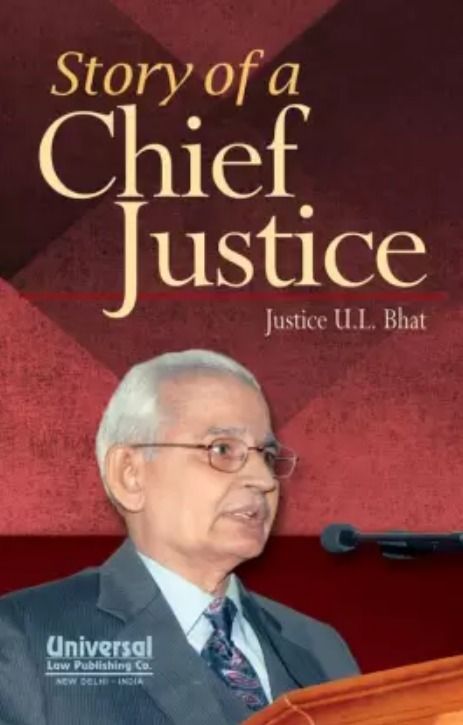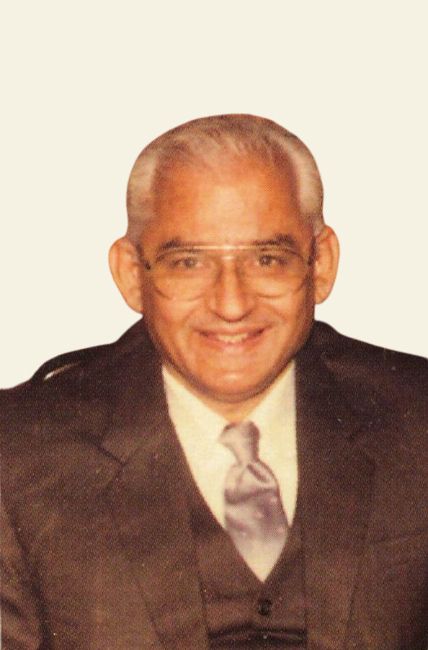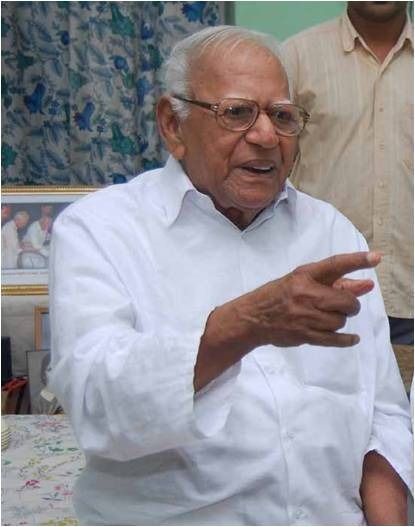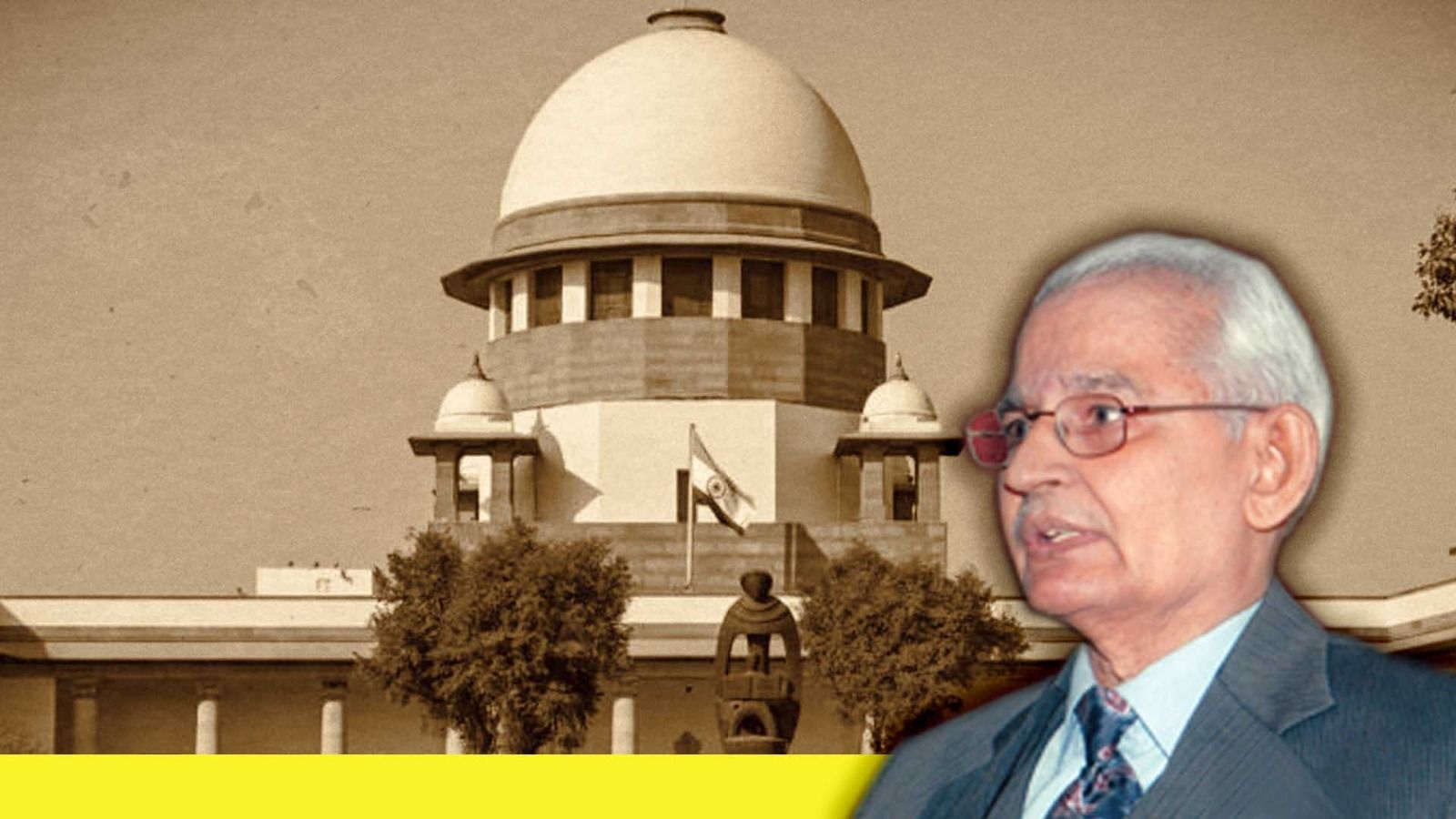Ullal Lakshminarayana Bhat or Justice UL Bhat as he was known through the last four decades is one of the legends of the Indian judiciary, celebrated for deep knowledge of laws, the empathy and understanding with which he employed this knowledge for the larger good of humanity and his firm commitment to the values of justice and social justice. Justice Bhat passed away on Thursday at the age of 91. Here, The AIDEM pays tribute to this great legal luminary by reproducing the preface written by Justice VR Krishna Iyer, another towering legend of the Indian judiciary, for Justice UL Bhat’s autobiography, titled “Story of a Chief Justice”. The book was published in 2013 by Universal Law Publishing Pvt Ltd.

Bhat is bold, brilliant and original. He is known for his integrity. His views on public issues and institutions are not conditioned by pressures from above or cravings from below. He is independent of expediencies, opportunisms and authoritarianism.
This I thought was a superlative qualification for a judge to function without fear or favour. But where lesser judges without vision are in authority over judges, this rare virtue proves to be a drawback. Bhat, a good, senior and great judge acted unafraid of authoritarian whims and wayward destinies. Bhat became a martyr. He lost his appointment to the Supreme Court because he was irreverent and not obsequious to seniors.
And when the constitutionally irrelevant institution called collegium composed of members, often without requisite qualities, is vested with vast and unchecked powers, sans glasnost, then the judiciary suffers from ‘obediently yours’ judges who are unconcerned with the aspirations of the poor and the weak but are reverential to the concerns of the wealthy and the mighty. Under a system selected and conditioned by bizarre collegiums, a judiciary with inflexible integrity is not a natural by-product.
But if we want fearless conscionable brethren on the Bench equal to the rich and the poor, eliminate the collegiums which by their performance until now have made a strong case for their liquidation. Justice U.L. Bhat’s exclusion from the highest Bench is one of the finest submissions in support of abolition of the collegiums. The untenability of the institution is brought out in one of the chapters by justice Bhat. In spite of unsatisfactory performances by the successive collegiums which act secretly and whose recommendations often are a riddle wrapped in a mystery inside an enigma, neither the Executive nor the Parliament had the conscience and courage to amend the Constitution and wind-up the system of the collegium which was a creature of a judgement with a narrow majority of one. All other reasons failing, Bhat’s exclusion was sufficient to condemn the collegiums – a good cause served effectively by this autobiography. Parliament and the opposition will wake up to save the country from the secrecy, absent transparency and absent perestroika of the collegium.

I have said enough to criticise what I consider unconstitutional in the collegium. Nay more. It is feudal and functionally arbitrary; otherwise it is incomprehensible that anyone should imagine that a person with judicial power however small or supreme should be subservient. No judge is subordinate to another in his judicial functions. It is farcical, flawsome and blundersome for any judge within the scope of his powers to be obsequious. District judges and those of the High Court are not subordinate to anyone, even the Chief Justice of India, in the area of their jurisdiction.
Unfortunately the courts in our hierarchy have imparted the notion of high and low. This is like paraya and prince, a judicial caste system essentially feudal and inconsistent with the basic structure of our Constitution and its culture. Justice Bhat has pointed out with courage and conviction this fundamental blunder in the philosophy of the higher caste of judges. All Judiciary is equal, not higher or lower. Not sycophancy but principled valour is the backbone of anyone occupying judicial office.
The collegium is a high caste creation. They do not investigate or show transparency. They have no functional machinery, except hearsay, to select judges even in the Supreme Court. Justice Bhat has produced a classic work on the Judiciary under guise of his autobiography.
I am happy to write this foreword since judges of his calibre are of the rarest of the rare. This book by him is a precious treasure and is a grand edition to the libraries of India. He was shaped by his social milieu as a young person. He was of Andhra, of Karnataka and ended up as a Kerala judge. His jurisprudence was not in the ambition to climb to the highest echelons but social justice to every person of India. On top of this Everest wonder, he was a socialist by conviction.

We, the people of India, was his Constitution before elevation as a judge and on retirement. Integrity was his great asset. This book is luminous and a wonder. Because he has not minced matters, never praised to please, but stated only facts, only facts. Of U.L. Bhat, a creative judge in three High Courts, I might assert that he gave the people of nine backward States access to economical justice worthy of a socialist, secular, democratic republic. This autobiography illuminates the soul. I pay a tribute to him now that he is back at the Bar, the Bar also has to be independent. A free Bar is a sine qua non of free Bench. We want the Bar and the Bench to have an independent social philosophy tuned to the values of the Constitution and engineer into existence a Socialist Secular Democratic Republic.








